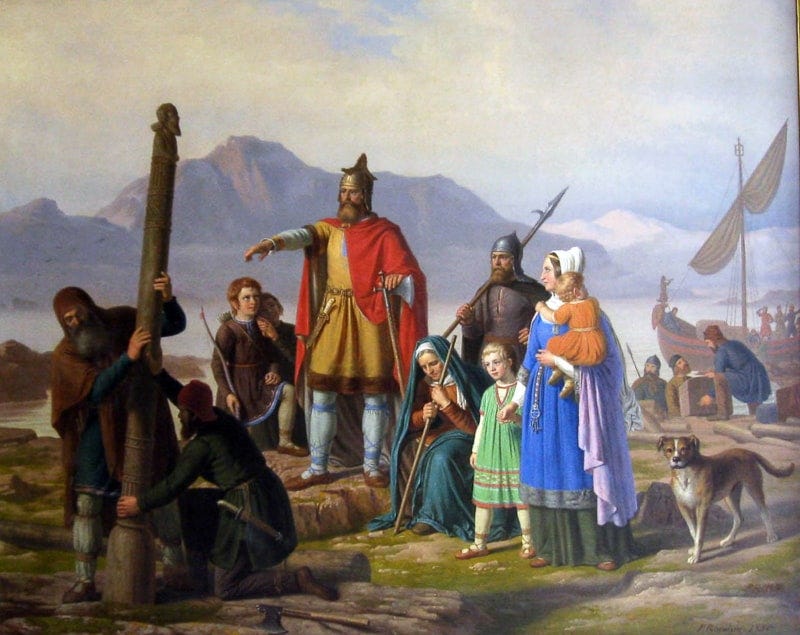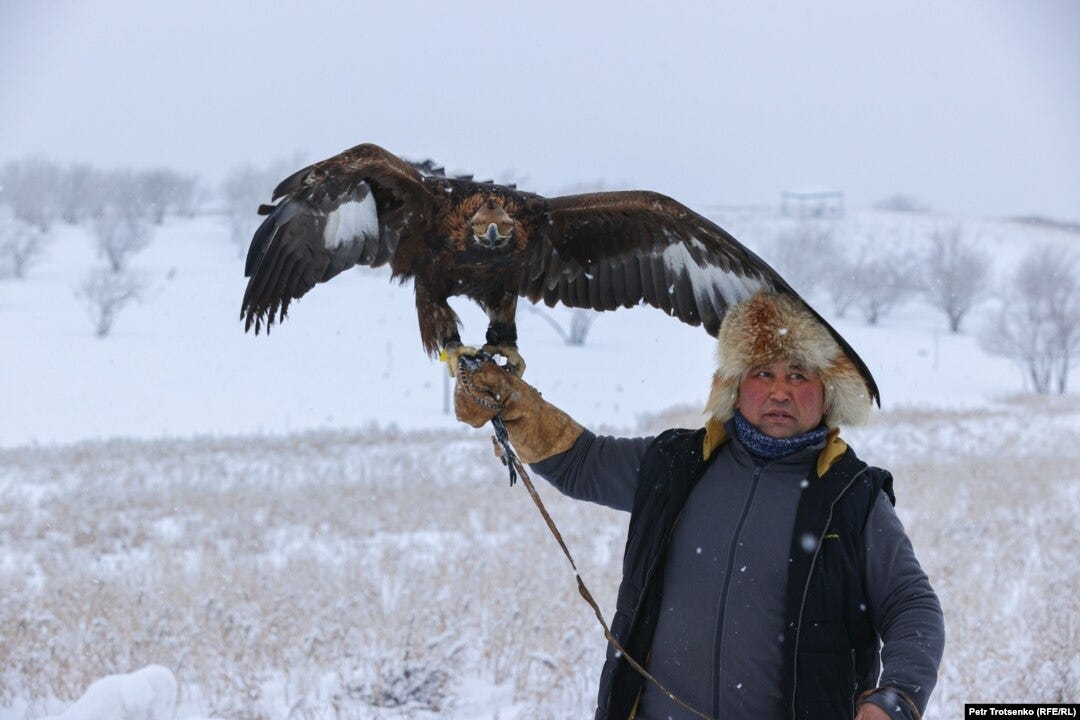A simple, yet tough ritual can turn your sons into “all terrain” type men, capable of handling anything life throws at them.
With encouragement and direction, they can make the transition from boyhood to manhood and come out the other side with the tools necessary to be a man.
The rite of passage
For thousands of years the rite of passage had been a critical part of every boy’s life. Now, in the modern world, college is one institution which has tried to take the place of a rite of passage.
College allowed young men to leave home, live alone or with other young men on the same or similar path, and acquire knowledge from people who were deemed experts in their field.
Does college actually fill the shoes of a rite of passage?
Around the world in…well…a minute or two
A Norse boy was expected to help run the family farm. At the age of 10 he would then go on hunting trips with the men of his village. Similar to the Spartans, the young Viking boys would learn how to fight by the time they had reached their teens.
By Norse law, a boy was considered a man when he reached the age of 12. Though, in reality that didn’t matter much at all. Only after completing a series of tasks, including hunting and fighting, would the Norse boys be considered men.
Toga Virilis
At the age of 14-17 Roman boys would trade their toga praetexta (toga with purple stripes) for their toga virilis (toga of manhood). The exact timing of when the boy would finally get to wear the toga virilis depended on two things: his physical maturity, and when his father deemed that he was ready.
The boys of Rome wore the bulla praetexta around their necks. It was a gold or leather charm meant to ward off evil spirits. Every March, the ancient Roman festival of Liberalia, which celebrated the god of wine and fertility, would begin.
While there was lots of drinking and festivities, it was also a time of ritual. Now, the young Roman boys would take off the bulla praetexta and offer it on an altar to the gods. Afterwards the boys would exchange their toga praetexta for their toga virilis, and they would become men.
The removal of the bulla praetexta can be seen as a symbol of making the transition from needing care and protection to, instead, being the protector against evil, and providing care for those in your family and community.
This would mark a very clear switch from boy to man. Yes, a young man who just received his toga virilis would have much more freedom, but with it there was also much more responsibility. He was required to speak as a man, to act as a man.
He was no longer just a consumer, but a producer. He was now a servant to his family and the community. The transition came with a clear duty to act.
Lion hunt
The Masai tribe of Africa who live in southern Kenya and Northern Tanzania had a ruthless rite of passage for their young men. According to the tribe, a boy could only become a man once he had killed a lion. And there’s a catch…he could only do it with a spear and he had to hunt alone.
Once he had accomplished that task he could come home to the tribe. A successful hunt meant that the boy would now be seen as a man. The hunt was seen as an act of courage and masculinity.
Command an eagle
Mongolian fathers would train their sons in the art of berkutchi (eagle hunting). The golden eagle would be trained to catch prey and return the prey to its owner. A boy would be given a baby golden eagle to raise and train. No male could ride with the men of the tribe unless he had mastered this art.
Due to the fact that eagles are independent creatures it is incredibly difficult to train them to hunt for your benefit. A boy became a man as soon as he had proven he could command the eagle.
Vision quest
The North American Indians had countless rites of passage among all of the different tribes. Yet, there were many similarities between them. A vision quest was often a major part of their rituals. It involved sending a boy out into the wild alone. The boy would fast, pray, and seek guidance from spirits to discover their purpose.
The boy would be taught the ways of his people, his culture, as well as how to farm and hunt.
There are 3 stages to a Rite of Passage:
Detachment from former self:
This is done symbolically through the phases the child has to go through. They are “cutting away” from their former self by going through with the passage.
The “Liminal Phase”:
During this stage they are in an in-between stage. They are no longer children, but they have not completed the passage yet.
The Reaggregation phase:
They have completed the passage and now assume their new role or “identity” within their society or family. They have completed the ceremony.
What makes a good rite of passage?
Cultural education
An understanding of your people and their ways is imperative. A boy should at least have an understanding of his family and what his family values.
What does your family value? Strength, wisdom, courage, industry, integrity, grit?
If you aren’t sure, you may have to make it up. That’s what my dad did for my sister and I. He simply started saying, “Smiths don’t do that.” Or, “Smiths value this…” Was there a long tradition of our family holding those values? No, it started with my dad. He made it all up, but over time it has become true. That is what we actually value.
Isn’t that how all traditions start? Someone has to decide how things will be.
He did tell us stories that were completely true, stories of our family. One of our ancestors, John Howland, is famous for falling off of the Mayflower and surviving. His is a story of grit and courage. Or our great great great grandmother who used to babysit our dad when he was little. She would tell my dad stories of her travels along the Oregon Trail.
Our great great grandfather was born dirt poor and worked his way up the ladder at John Deere. He started as a janitor and ended up as the vice president of the company. He was so loved and respected by the team at Deere, that when he passed away, long after retirement, they sent the corporate jet to bring his body back home to Moline, Illinois to be buried.
There’s nothing like these types of stories which connect us with our ancestors.
An understanding of familial culture gives a boy a deep idea of where he comes from. It allows him to establish a stronger connection with his family and his family’s past.
Trials
A man’s life consists of trial after trial. If he learned how to handle trials as a boy, he is much more likely to withstand life’s difficulties, even thrive through them, as a man.
Every rite of passage has trials that a boy must overcome. The Vision Quest was used by the plains Indians as a ritual to send a boy out into the wild to test his ability to endure and overcome his fear.
Not that you have to drop your kids off at a forest, drive away, and come back a few days later. However, if you do create a rite of passage for your children, it should contain trials which are typical for an adult to have to overcome.
Years ago, when I turned 13, my father gave me a few note cards which contained the tasks I needed to complete in order to complete my passage. Each note card had its own theme.
One of the note cards was centered around hospitality. My task was to invite someone over to our house and host a dinner for them.
Endurance was the theme of another card. For that, I had to set up my own tent in the backyard and stay outside until the sun came up. Side note: just make sure your sprinklers are off beforehand, or don’t, laying in a puddle of cold water is good for endurance.
It isn’t necessarily the completion of the task which is most important, but what can be learned from it. Hospitality, endurance, courage, integrity…all of these great ideas have slipped away in the current world we live in. The rebirth of the rite of passage will help us get back on course.
So, there’s two benefits:
You are preparing your children to face the world and enter into adulthood.
You are creating a set of challenges they must face in order to complete the ceremony. There is a clear end to their childhood, and a clear beginning to their adulthood.
You are creating a stronger sense of family identity.
This is something that is rare today, but incredibly important. When you have a sense of family identity (and a personal identity within the family) you feel as if you truly are working towards a common goal with the people you love. (Think of it as a Peaky Blinders situation, but without the mafia stuff.)
Does college fill the criteria for a rite of passage?
College is just a good of a replacement to a rite of passage as sand is to asphalt roads.
It simply doesn’t hold up.
The rite of passage starts with the family and its values. It tests the children according to those values so that they may become fit for the world. The children are required to act within the world, as adults do.







I believe decades ago college might have been a right of passage. Not along the lines of raising an eagle or going on vision quests but what the west had to offer. Now that pretty much anybody can go to college that option has been watered down so much that it no longer qualifies.
It seems like now one has to be their own driver and be lucky enough to have an Uncle Maurice to help recognize a path and possibly help him along the way. Sort of an apprenticeship, and even then no journey would be the same. Not everybody will hunt lions or trade in togas. There are many ways to the top of the mountain, just as there are many ways to acquire a "cultural education".
I have different challenges in that I have a daughter and am always struggling with these issues. She shoots (clay targets) and did jiu jitsu (I am a 1 stripe brown belt in BJJ - hit me up for my jits lineage) up until this year (pisser because she would have gotten her blue belt when she turned 16 in Dec). Her journey has included subtle wine training (I currently own a wine shop in the States and am certified with the Court of Master Sommerliers) and daily deprogramming from her private school that she attends now. Her IQ is off the roof (early graduation as a junior in high school with a double major associates degree in Econ and lib arts) but while I feel she'd survive a zombie riot if she had her 20 gauge with her I fear that she's too dependent on the internet.
I'm also an Army vet and would not want her to join now. Being a mercenary slave to the ruling class is the last way I'd want her to go.
Also with the way the world is now, what chess moves would be the best with AI eliminating most jobs and the world rapidly changing. Hell, nobody knows if there's going to be air travel for people not in the billionaire class. We are all in search of the best ways to prepare our children and to create a strong sense of identity. I fear I haven't done a good enough job.
Thank you for the post, it has given me much to think about.
Interesting research. I am fairly confident that none of the vision questing native Americans of the First to 19th Centuries used the word "liminal" or "reaggregation." I am not impressed by the cultural anthropologists of the current era. They have big words to describe simple things.
The multi-great grandma sounds like a very long lived lady. More details on her story would be welcome.
I used to live directly on the Oregon trail in Kansas and I now live in Oregon so these stories intrigue me.
It's an interesting idea that wearing different garments changes a person. The transition from knee-length to long pants used to have that connotation in much of our culture, in the 19th and early 20th Centuries.
In Catholic tradition anyone over the age of reason (varies by person and is evaluated by the parish priest, typically age 7 or so) is eligible to be confirmed in the Church. Most children are expected to make this transition by age 13 to 15. The purpose of confirmation is to ensure the soul knows the truth about Jesus Christ and Mother Mary, knows what is expected of members of the parish community, and is in communion with the saints. We consider all confirmed members of the Church to be in the royal family of God.
For a while you mentioned college, military, and trade paths. The military has boot camp. College has final exams. Trades have apprenticeships that lead to becoming a journeyman. These are all rites of passage. Each semester of college must be passed to attain "graduation" after which there is post graduate "work" for "advanced" degrees.